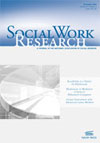 [Referencing: Song-Iee Hong and Nancy Morrow-Howell, “Increasing Older Adults’ Benefits from Institutional Capacity of Volunteer Programs,” Social Work Research, volume 37, Number 2 (June 2013), pp. 99-108.]
[Referencing: Song-Iee Hong and Nancy Morrow-Howell, “Increasing Older Adults’ Benefits from Institutional Capacity of Volunteer Programs,” Social Work Research, volume 37, Number 2 (June 2013), pp. 99-108.]
Volunteering has become an important strategy to boost the civic engagement and well-being of the growing older population. A wealth of evidence supports a relationship between volunteering and positive health and mental health outcomes for older adults. A growing body of literature on volunteering documents individual benefits, such as reduced mortality, increased physical functioning, better self-rated health, higher levels of cognitive functioning, better skill and knowledge development, maintenance of a sense of purpose in life, better muscular strength, lower levels of depression, reduced pain, and higher levels of satisfaction.
Yet the efficacy of volunteering for helping older adults maintain health and mental health varies. Song-Iee Hong and Nancy Morrow-Howell examine these factors in the most recent issue of Social Work Research. The authors of this study wanted to determine what factors in volunteering situations could increase the efficacy of health and mental health maintenance. To do so, they focused on the institutional capacity of volunteer positions. “Institutional capacity” is defined as the ability of social institutions, such as businesses, churches, civic clubs, and public and private agencies, to provide productive roles for older adults. In regard to volunteering, institutional capacity describes institutional or organizational arrangements that link individuals to and sustain them in volunteer roles.
The authors followed a three-pronged approach:
First, we studied those participating in programs, which allowed us to examine the variations within active volunteers. Second, we studied a wide range of variables drawn from a sample of older adult volunteers nested in certain programs, and the hierarchical structure of the data allowed us to test individual and institutional factors simultaneously. Third, we assessed the volunteers’ outcomes at multiple levels, including individual, family and community. In sum, this study will increase knowledge about volunteering that can be used to inform the development of programs and policies to maximize the benefits experienced by older volunteers.
The authors measured a range of benefits from various volunteer programs, including meaningful activity, socialization, improved life, and personal growth. The study found that several factors increased the institutional capacity of volunteer situations, such as scheduling flexibility, transportation and mobility facilitation, role recognition, and stipends. The authors conclude that older adults’ contributions to society through volunteering can be maximized by nonprofit organizations that develop the institutional capacity to engage this growing population. Organizations can take actions that have positive consequences for their older volunteers.



